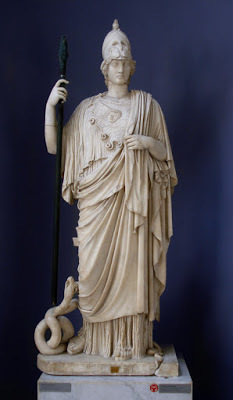Stephen Roney's Blog, page 216
November 14, 2020
The Press Gang
November 12, 2020
Puzzle Corner

A "what's wrong with this picture" picture from a hundred years ago. Quite apart from the quizzical fun, it is an insight into daily life in those days. Times have changed.
'Od's Blog: Catholic comments on the passing parade.
November 9, 2020
It's All Relative. Except, of Course, for Relativism

My friend Antiochus is under the false impression that absolutists—those who believe in absolute values—are difficult to talk to. He writes “In my experience, once an absolutist has decided something, there's not much of anything another person can say or do to dissuade him from continuing to see things a certain way.”
In fact, he has this exactly wrong. The current breakdown in civil discourse in the US, Canada, and Europe is directly traceable to the rise of relativism. Absolutists can discuss anything at all civilly, and come to agreement. Relativists cannot.
If you are convinced something is true, you are of course not easily going to change your mind about it. But is this a problem? Why does that matter/ If a scientist is adamant that the earth is round, is it a problem that you cannot convince him that the earth is flat as a manhole cover?
More importantly, if he is convinced that it is true that the earth is round, he will have no problem discussing the matter with you, hearing you out, and not forcing his opinion on you. He will try to convince you of his view, confident that he can. If he cannot, he is not troubled: he simply knows something you don’t know. This is entirely to his advantage.
Antiochus objects that this is a fabricated example: so let’s look at real world examples. Einstein’s Theory of Relativity in 1905 upended the accepted Newtonian view of physics. Did an irresistible force meet an unmovable object? Rather, Einstein won the argument, quick and simple. Just as Newton won the argument—there really was no argument—against Euclid in his day. So did Chomsky, with one famous article, in the late fifties, that neatly disproved the behaviourism that had been the standard view of psychology at the time.
Granted, things do not always go that smoothly. But that is the way it is supposed to work, and by and large how it does. The great thing about absolutism is that both sides have absolute standards to which they can appeal in case of disagreement. If either party is a relativist, there is no way to resolve disagreement.
The problem comes when someone is trying to promote an idea they do not themselves believe is true. Only then does it matter whether they can impose it on others. Only relativists will refuse to discuss and will try to impose their ideas.
The classic example of an absolutist is a philosopher. The point of philosophy is to seek absolutes: the good (ethics), the true (ontology) and the beautiful (aesthetics).
Philosophers are notably disinclined to impose their views on others. They tend, in a word, to be philosophical about things.
Religious people are also absolutists. The obvious example of absolutism in religion is the Catholic Church: it holds a body of dogmas to be proven beyond a reasonable doubt.
But the Catholic Church—or any religion—is incapable of imposing their views on anyone else. Adherence to any faith is voluntary, and even if you sign up, the Church has no power other than moral suasion: they only tell you things. Note that most Catholics, and most adherents of any religion, are positively eager to discuss their or another’s beliefs.
What, you might object, about militant Islamists? To which I respond that these are not religious absolutists, but religious relativists. Look into any “Muslim terrorist,” and you will find someone who was never thought of by their friends or family as particularly religious, who had a secular rather than a religious education, who knew little about their nominal faith. In short, they thought its truth was highly questionable, which is the only reason they would find any need to impose it on others. Or would feel it threatened. If, after all, you are convinced that God is behind it, and you, wouldn’t you assume it is bound to prevail without your taking any extreme measures into your own hands?
What about, say, the persecution of Catholics in England under Henry VIII?
Henry was the ultimate religious relativist. He switched religion just to get a divorce. This is why he felt he needed to impose the new faith. As a relativist, he found religious absolutists threatening.
The ultimate religious absolutist would be a monk in a monastery. Not a lot of terrorism in a monastery.
The obvious example of absolutism in politics is the doctrine of human rights. “We hold these truths to be self-evident, that all men are created equal, and are endowed by their Creator with certain inalienable rights; that among these are the right to life, liberty, and the pursuit of happiness.”
It is fair to say there has been some effort to impose this doctrine on others: in Germany or Japan after the Second World War, in Britain’s century-long battle against the slave trade, in the American Civil War.
I am unashamedly an absolutist on this; I believe in the existence of inalienable human rights, and I think it is proper to fight to defend them. Because I am an absolutist, however, I am also at least perfectly happy to discuss the matter, if anyone else does not agree with the concepts of human equality or human rights.
Let us compare relativism. Fascism is relativism. Mussolini, its chief theoretician, said as much in as many words. Because truth and morality were up for grabs, Hitler or Mussolini saw the propriety of imposing whatever was their will, or seemed to their benefit; or that of the German or Italian nation.
Marxism is also relativist: Marx held that everything was “ideology,” imposed on us by our social and economic system, and nobody—except, presumably, Karl Marx, in an obvious logical contradiction—could see beyond this to any absolute truth or morality.
And where have Fascism and Marxism led us? Granted, if you are a moral relativist, the deaths of millions may have no particular significance… as it did not to Mao or Stalin or Hitler; that, sadly, is a given.
But are you, gentle reader, prepared to declare yourself a relativist now?
'Od's Blog: Catholic comments on the passing parade.
November 8, 2020
Wisdom
 Wisdom with her daughters Faith, Hope, and Charity.
Wisdom with her daughters Faith, Hope, and Charity.
Resplendent and unfading is wisdom,
and she is readily perceived by those who love her,
and found by those who seek her.
She hastens to make herself known in anticipation of their desire;
Whoever watches for her at dawn shall not be disappointed,
for he shall find her sitting by his gate.
For taking thought of wisdom is the perfection of prudence,
and whoever for her sake keeps vigil
shall quickly be free from care;
because she makes her own rounds, seeking those worthy of her,
and graciously appears to them in the ways,
and meets them with all solicitude.
When I was in graduate school, I wanted to study Wisdom. For an obvious reason: I had no idea what it was. I understood what intelligence was; I understood what knowledge was. But what was this mysterious third thing?
I was not able to, because there were no courses offered on the subject, and no faculty member would agree to supervise a reading course on it. Which is perhaps telling, perhaps not. I suspect that Wisdom has few friends in grad school.
 Athena
Athena
Yet it was clearly something of importance. The Greeks revered it as the goddess Athena, and named their principal city after her. Bulgaria named their capital after her: Sofia. The principal church of the East was named for her: Hagia Sophia, Holy Wisdom. In India she is revered as Sarasvati, the active principle of Brahma, the supreme godhead. Philosophy itself was named after her: “the love of Wisdom.” So why was no one talking about her? Why did nobody seem to know who she was?
 Sarasvati
Sarasvati
I assumed, of course, that Wisdom was something deeply mysterious, which for some dark reason one only acquired towards the end of one’s life.
So the striking thing about the reading is that it suggests that wisdom is not mysterious at all; that she is “readily perceived by those who love her.” That is the whole point, repeated, of the passage.
It is not that she is hard to find, or difficult to understand. It is that we fail to love her. We do not want her.
Thomas Aquinas, citing Aristotle, defines Wisdom clearly: “it belongs to wisdom to consider the highest cause. By means of that cause we are able to form a most certain judgment about other causes, and according thereto all things should be set in order.”
If that is not perfectly clear to you, to anyone, it is because you do not want it to be. For some reason, most of us would rather be chasing squirrels and barking up trees. Perhaps it comes to some of us late in life out of no more than sheer exhaustion—to turn to the loving hand that was there in every dawn all along. And to many of us, clearly, it never comes at all.
Late have I loved you, beauty so old and so new: late have I loved you. And see, you were within and I was in the external world and sought you there, and in my unlovely state I plunged into those lovely created things which you made. You were with me, and I was not with you. The lovely things kept me far from you, though if they did not have their existence in you, they had no existence at all. You called and cried out loud and shattered my deafness. You were radiant and resplendent, you put to flight my blindness. You were fragrant, and I drew in my breath and now pant after you. I tasted you, and I feel but hunger and thirst for you. You touched me, and I am set on fire to attain the peace which is yours.
- St. Augustine
'Od's Blog: Catholic comments on the passing parade.
Where We All Once Were on a Sunday Night
Inspired by a recent email from my sister: memories of the Ed Sullivan show. It used to be the pinnacle of North American culture: it was what was happening, and everyone on Monday discussed what they saw the previous night.
Kind of a shame that variety shows like Ed Sullivan are dead. They were unifying. And they were the scions of a long and storied line, back to the English music halls and vaudeville. Same format; they just put a camera in the audience. They are still crazy popular in the Philippines.
Here’s a longer version of Wayne & Schuster’s great skit:
'Od's Blog: Catholic comments on the passing parade.
I Have No Idea
... whether this is real. Beyond my competence. But it is being blocked by Facebook, so it is worth posting here.
November 7, 2020
The International Canadian Conspiracy Comes for Trump

Here’s a conspiracy theory based on unsubstantiated rumours. Deal with it.
A couple of weeks ago, some talking Tuber was spreading the story that the US Military had software that could rig foreign elections. And they had used it successfully. Specifically, the rumour held, they had used it in Canada.
I knew that one wasn’t true. I know the Canadian voting process. No piece of software could interfere with a Canadian election, which involves a paper trail and a public tallying observed by all parties, each of whom can keep their own independent records. I felt proud of the good old Canadian low-tech traditions. And scoffed at the foolish Americans who tinkered with things like voting machines.
Then in the current chaos, a couple of days ago, another rumour popped up online that one county in Michigan had wrongly given Trump 6,000 votes to Biden. And this was blamed on a software glitch.
Funny sort of software glitch. Sounds pretty boneheaded of the programmer who could allow such a basic coding error.
Then I hear that the same software is being used in over sixty Michigan counties. At this level, multiplied by sixty, the same software error could easily have flipped the entire state from Trump to Biden. That’s 360,000 votes. Biden leads Trump in the local count, at the moment, by about 130,000 votes.
Then I hear that the same software is being used in all the tightly-contested swing states, where the vote totals have, since election night, swung from Trump to Biden. It is used in 33 states.
Now I hear that the software is made by a private company called “Dominion Voting Systems.” A Canadian company, founded in 2002. The code is proprietary.
Could that rumour about election-fixing software having been used in Canada have been a case of “Chinese whispers”? Was it that the software was made in Canada, rather than used there?
Is Canada fixing US elections, instead of the other way around?
Or, more likely:
If the US Military, or the CIA, say, wanted to create a software program that they could use to control foreign elections, they would not have it made in the USA. That would raise suspicions. Everyone thinks of Canada as more benign; a stable democracy, and everyone’s buddy internationally.
Then, of course, you would set up the company as private, so that nobody could see the code. Use a nice generic Canadian-sounding name. You want people to understand it is Canadian.
But Canada is tightly enough in the US orbit, close enough, interconnected enough, and dependent enough on the US, that the US government could still be confident of absolute control.
Why wouldn’t the CIA, say, do something like this, as a matter of course? They are pretty much not doing their job if they haven’t.
Perhaps as purely a fringe benefit, this means that the CIA has the ability, if they so choose, to fix any US election as well.
We know the “Deep State,” the permanent bureaucracy, is opposed to Trump. We know that the FBI tried to stage what was essentially a coup with the “Russia collusion” business. Prepared to go that far, even at the risk of exposure, why wouldn’t they go far enough to fix the next election, if they fairly easily could?
More generally, it seems inevitable that any state with an active covert activities arm will sooner or later see that covert organization organizing to control its own government. We saw it in the Soviet Union as early as Stalin’s death; Beria failed, but Yuri Andropov later succeeded, and old KGB hand Putin succeeded him. We saw it in Nazi Germany; Canaris and the Abwehr worked secretly against the Nazi government throughout the war. If we have not seen it in Britain, perhaps that is only because there was no need. The intelligence operation and the ruling class have always been indistinguishable and in charge. Didn’t we all know that? Brits simply trust their civil service and ruling elite to know best, and always have.
The footprints have, it seems to me, been visible for some time. Someone has been running things behind the scenes in the Democratic Party, this election and last, pre-determining the nominee regardless of the popular vote. Biden looks like a straw candidate, and it is bizarre how all the other candidacies suddenly conceded. … The Democratic Party being, like the Liberal Party in Canada, the party of the permanent bureaucracy.
Yes, it sounds like the perfect conspiracy theory, the kind tinfoil hats were invented for.
If it is real, the truth will probably come out. Conspiracies are real; ask Julius Caesar. It is just that the big ones rarely succeed.
'Od's Blog: Catholic comments on the passing parade.
November 5, 2020
The Razor's Edge
On the other hand, there seems to be substantial evidence that this is due to fraud. Americans are inclined to cry foul whenever their team loses; but this time it looks real. Reports of large tranches of ballots, all for Biden, being wheeled into the Detroit voting centre in the middle of the night. Reports of postmarks being falsified to allow extra ballots to be counted. Scrutineers being barred from the count. Reports of jurisdictions in Michigan and in Wisconsin reporting more votes cast than eligible voters. Reports of votes from dead people.
The new rules for mail-in voting, even if arguably justified by the pandemic, seemed all along designed to allow for fraud. Biden has actually publicly declared having pulled together the greatest voter fraud operation in American history—no doubt a senior moment, but more likely an inadvertent truth than a purely random mistake. Seeing Trump win in the vote count on election night, then a pause in the counting, and the tallies all suddenly reversing the next day, is exactly what we see in rigged votes. We have, further, seen time and again that the left will break all the rules, norms, and conventions in order to get what they want. Why would they stop short here?
Trump is going to court. If the matter reaches the Supreme Court, he has the advantage. You cannot expect the Supreme Court to support him if he has the clearly weaker case; regardless of ideology, they do not want to delegitimize themselves. But if he has a decent case, they will surely listen sympathetically.
On this basis, Trump may yet win. I suspect he legitimately won Michigan, Wisconsin, and Pennsylvania.
Either way, it all seems likely to make America ungovernable for the next four years. Whether Biden or Trump prevails, half the country is going to consider it illegitimate.
'Od's Blog: Catholic comments on the passing parade.
November 3, 2020
Trump is Winning Florida
And winning by a margin outside the margin of error in the polls.
Story is apparently a huge move to the Republicans by Hispanics.
To Watch for in the Early Going
If Biden wins Florida, it is over—Biden wins.
If Biden wins Georgia, it is over—Biden wins.
If Biden wins North Carolina, it is over—Biden wins.
If Trump wins Pennsylvania, it is over—Trump wins.
If Biden wins Ohio, it is over—Biden wins.
If Trump wins Ohio and Michigan, it is over—Trump wins. 'Od's Blog: Catholic comments on the passing parade.




